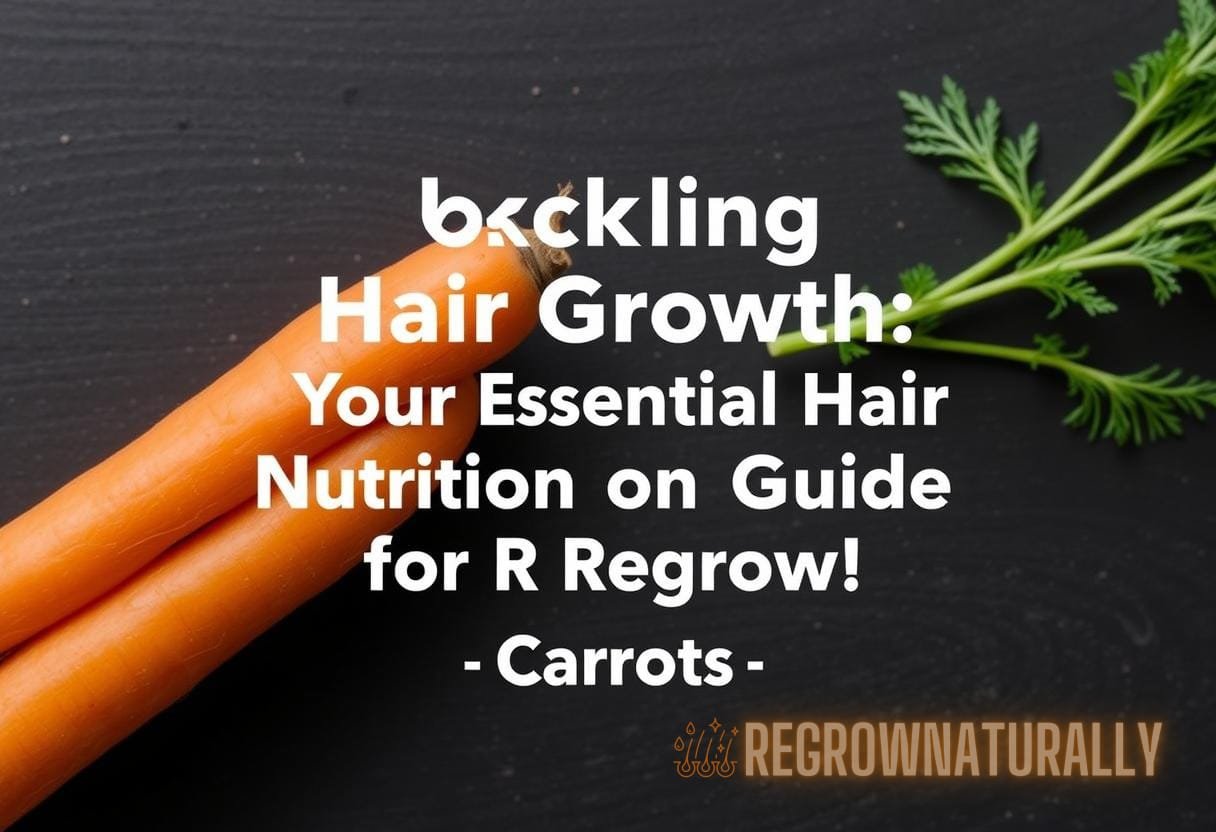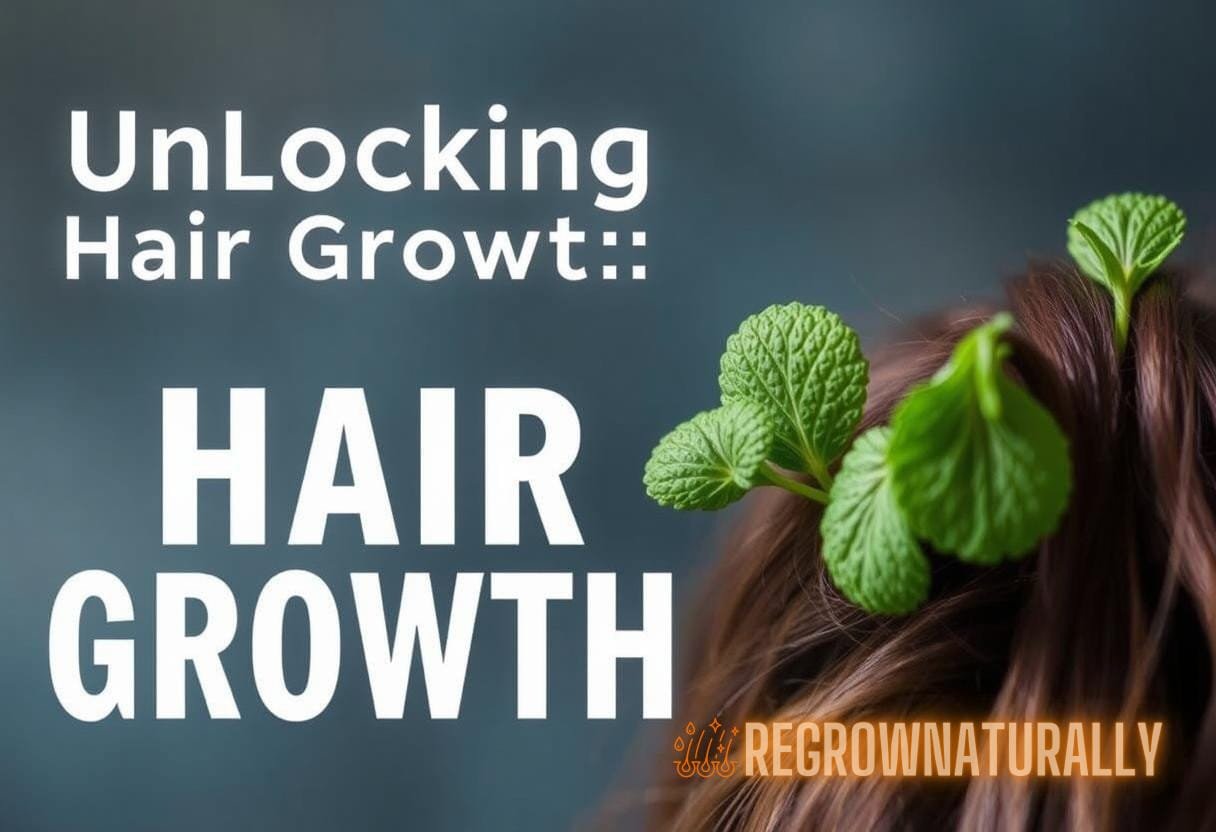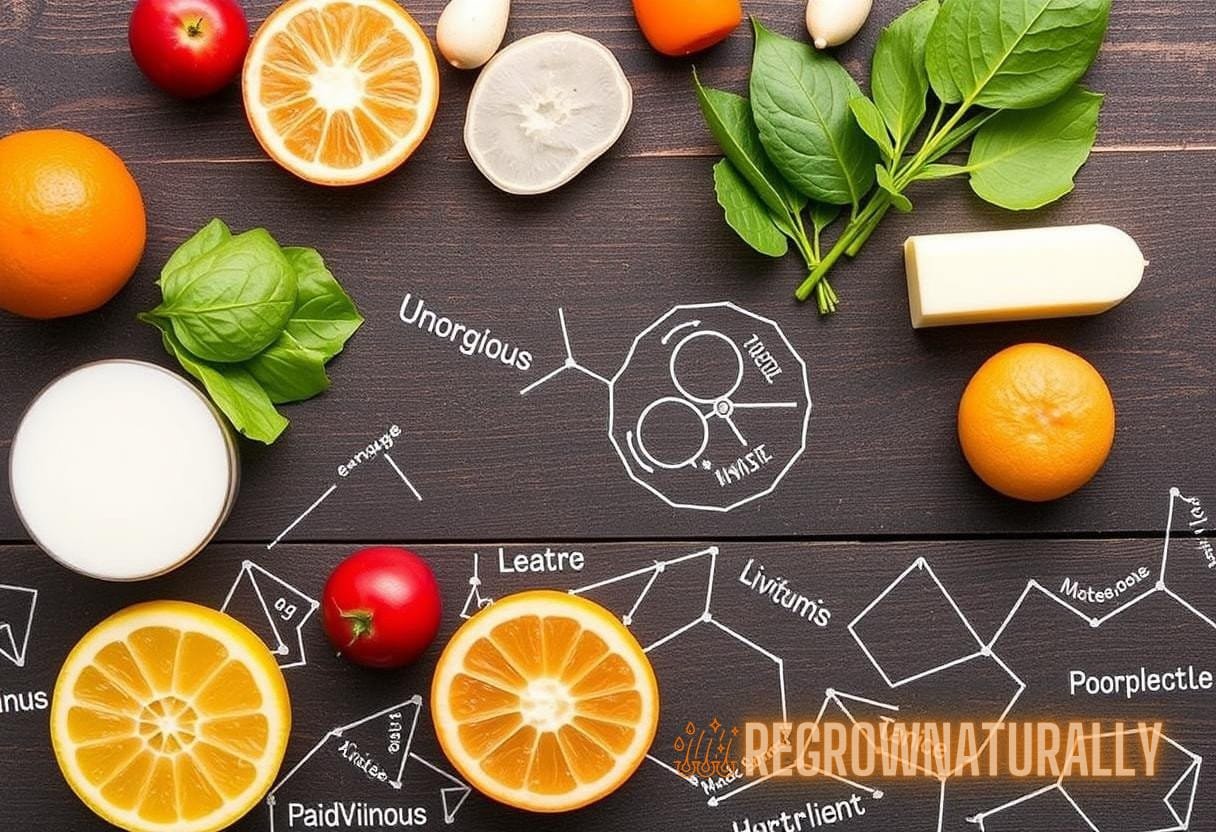The Nutritional Nexus: Exploring the Interplay Between Diet and Hair Regrowth
Hair loss is a common concern faced by millions of individuals worldwide, prompting a search for effective solutions. While many factors contribute to hair health, emerging research suggests that nutrition plays a critical role in hair regrowth.
Understanding Hair Structure and Growth Cycle
To appreciate the impact of nutrition on hair regrowth, one must first understand the structure of hair and its growth cycle. Hair is primarily composed of a protein called keratin, which is produced in hair follicles. The hair growth cycle consists of three main phases:
- Anagen phase: This is the active growth phase that can last several years.
- Catagen phase: A transitional phase lasting about two to three weeks where hair growth slows.
- Telogen phase: The resting phase where hair follicles shed old hair, lasting around three months.
Proper nutrition can significantly influence the duration of the anagen phase, thereby promoting longer hair and preventing premature hair loss. Nutritional deficiencies can result in shortened hair growth cycles, leading to thinning and eventual loss.
The Role of Key Nutrients in Hair Health
The following essential nutrients are critical for hair health and regrowth:
1. Proteins and Amino Acids
Since hair is made primarily of protein, adequate protein intake is crucial for hair growth. Amino acids, the building blocks of proteins, are necessary for keratin production. Foods rich in protein include:
- Lean meats (chicken, turkey, beef)
- Fish (salmon, tuna)
- Eggs
- Dairy products (yogurt, cheese)
- Legumes (lentils, chickpeas)
Incorporating these foods into your diet can enhance your hair nutrition guide by ensuring that hair follicles receive adequate building blocks for keratin synthesis.
2. Iron
Iron deficiency is one of the leading causes of hair loss, especially in women. Iron helps red blood cells carry oxygen to hair follicles, promoting growth and repair. Sources of iron include:
- Red meat
- Spinach and leafy greens
- Beans and lentils
- Nuts and seeds
Consuming vitamin C-rich foods, such as oranges and strawberries, alongside iron-rich foods can improve iron absorption, enhancing overall efficacy.
3. Omega-3 Fatty Acids
Omega-3 fatty acids are vital for maintaining scalp health and promoting hair regrowth. They provide essential oils and nutrients to the hair follicle, which can help to prevent dryness and promote shine. Good sources include:
- Fatty fish (salmon, mackerel, sardines)
- Flaxseeds and chia seeds
- Walnuts
4. Vitamin A
Vitamin A is crucial for cell growth, including hair cells. It also helps in producing sebum, which keeps hair moisturized. Foods rich in vitamin A include:

- Carrots
- Sweet potatoes
- Spinach
- Kale
5. Zinc
Zinc plays a vital role in tissue growth and repair, making it integral to hair health. A deficiency can lead to hair loss and brittleness. Foods high in zinc include:
- Oysters
- Red meat
- Poultry
- Beans and nuts
The Influence of Lifestyle Factors
While nutrition is fundamental, lifestyle factors also significantly affect hair health. Stress, sleep, and overall health can substantially impact hair growth. Here is how to optimize these aspects:
- Manage Stress: Chronic stress can lead to telogen effluvium, a condition where hair prematurely enters the telogen phase. Techniques such as meditation, exercise, and yoga can help manage stress levels.
- Quality Sleep: Sleep is vital for cellular regeneration and recovery, including hair cells. Aim for 7-8 hours of quality sleep per night.
- Stay Hydrated: Proper hydration supports overall body functions, including nutrient delivery to hair follicles.
Identifying Nutritional Deficiencies
Recognizing signs of nutritional deficiencies can aid in improving hair health. Common symptoms include:
- Thinning hair
- Increased hair shedding
- Brittleness and dryness of hair
If you suspect nutritional deficiencies affecting your hair, consulting a healthcare professional for blood tests and personalized dietary recommendations is advisable. A comprehensive hair nutrition guide can assist in this process.
Case Studies: Successful Hair Regrowth Through Dietary Adjustments
Numerous individuals have transformed their hair health through dietary changes. One notable case is a 30-year-old woman experiencing hair thinning attributed to a lack of iron and protein in her diet. Upon introducing iron-rich foods and increasing her protein intake, she noted significant improvement in hair density within months.
Another study published in the Journal of Clinical and Aesthetic Dermatology revealed that participants who followed a Mediterranean diet rich in omega-3 fatty acids and antioxidants experienced a decrease in hair loss and improved hair health within 12 weeks.
Common Myths about Hair Nutrition
Despite the increasing awareness of the relationship between diet and hair regrowth, several myths persist:
- Myth 1: Only expensive supplements can improve hair health. Truth: A balanced diet rich in whole foods often provides all necessary nutrients.
- Myth 2: Hair products can reverse hair loss. Truth: While certain products can enhance appearance, underlying nutritional deficiencies must be addressed.
- Myth 3: High-protein diets harm hair. Truth: Protein is essential for hair growth, and dietary sources are generally safe.
Conclusion
In summary, the interplay between diet and hair regrowth is intricately linked to nutritional intake. Understanding which nutrients contribute to healthy hair, along with lifestyle choices, can empower individuals to take proactive steps in optimizing their hair health. Regular monitoring of one’s diet and addressing any deficiencies through a balanced approach can create a solid foundation for successful hair regrowth. Continually educating oneself on nutritional science is essential in the pursuit of improved hair health.



